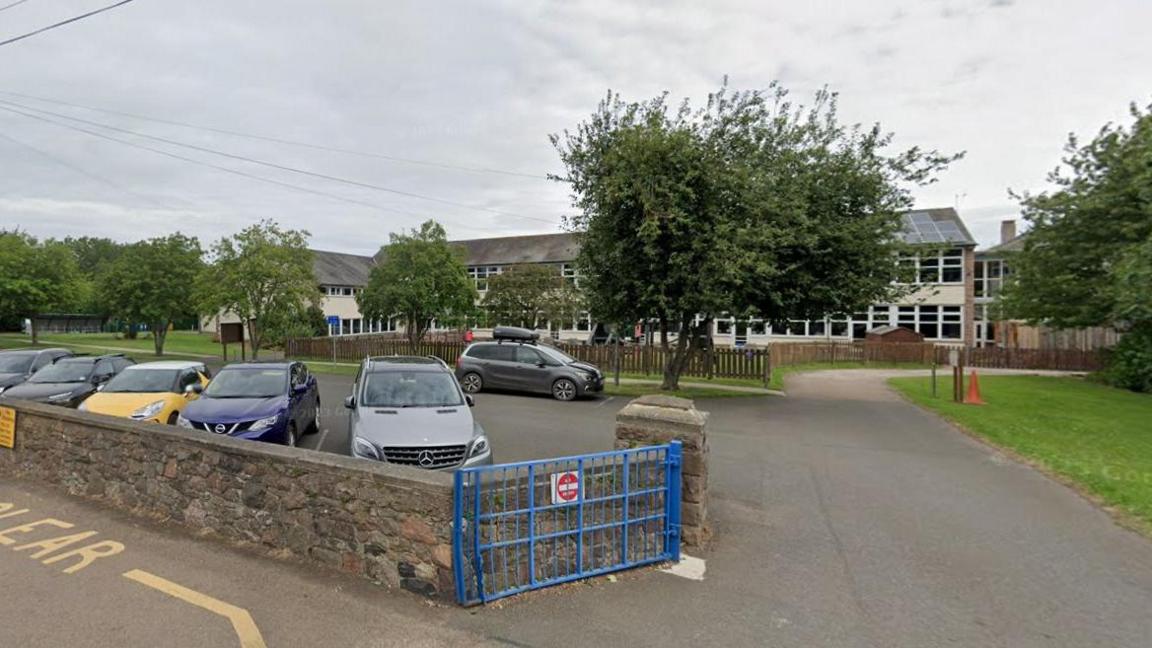Councils 'sleepwalking into crisis' over schools
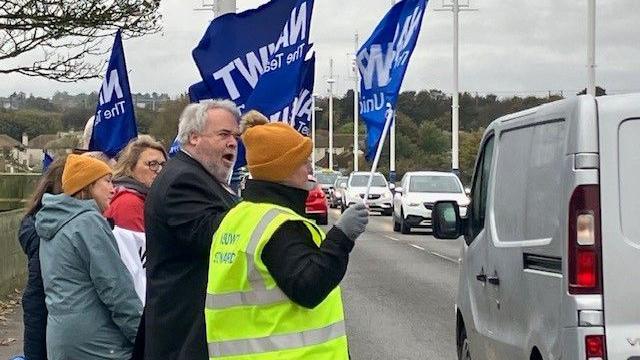
Berwick middle school teachers and staff have been staging strikes over closure plans
- Published
Councils in north-east England are being warned they are "sleepwalking into a crisis" unless they start discussing falling pupil numbers as a regional issue, rather than a local one.
Teachers' unions say they expect more school closures and strikes unless the issue is looked at more widely.
The Department for Education has been approached for comment.
Catherine McKinnell, Labour MP for Newcastle North, said school funding would be "kept under review".
For the last decade the birth rate in England has been falling.
According to data from the Department for Education, councils across the country are expecting to see pupil numbers fall by an average of 4.5% by 2027.
But the figures could drop by 7% in the North East as a whole, with Redcar and Cleveland, Stockton and Hartlepool, on Teesside, all predicting pupil numbers to reduce by as much as 10%.
We don't know how many people are having babies - and that's a headache for schools
- Published24 July 2024
It means lots of schools will start operating below capacity and have surplus spaces.
That ultimately means less money for schools because, at present, they are given funding based on how many pupils they have on their rolls.
We are already seeing school closures in North East, with falling birth rates being cited, and we are being warned it could become more prevalent in the coming years.
Children will 'suffer'
Last year Northumberland County Council decided to move from a three-tier education system to a two-tier operation.
It cited falling pupil numbers, an increase in surplus places and parents choosing to send their children to schools in Scotland and Alnwick.
It plans to shut Glendale, Berwick and Tweedmouth middle schools by 2026, expand the first schools in the area to primary schools from September 2025 and convert Berwick Academy into an age 11-to-18 secondary from September 2026.
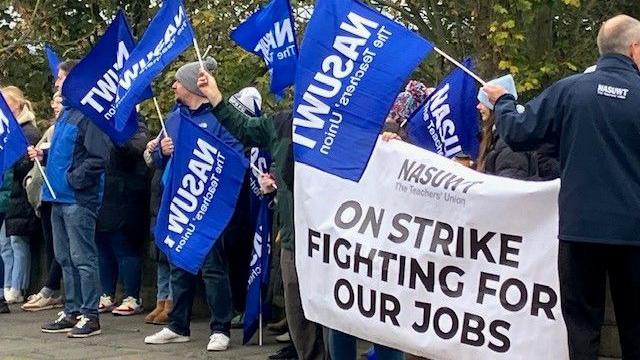
The closure of three schools in Berwick would put more than 140 staff at risk
Elaine Younger's son goes to one of three middle schools which are due to close.
The plan for his education and his younger siblings is unclear.
"I'm angry," she says. "I'm upset that my children are going to suffer throughout this process.
"There's no plan of action for any of the schools that I've been made aware of.
"In fact it's probably less than what the consultation said because they were promising a new high school and there's been no plans put forward for that."
She said one of her "biggest fears" was that her children would be "left behind those in the rest of the country".
The council says an investment of £50m in the Berwick partnership of schools is set to transform education in the area for generations to come and that architects have created a series of designs for the first schools.
It added: "The procurement of contractors is also under way and planning applications have started to be submitted.
"An outline business case for the project to develop the Berwick Academy buildings will be brought to cabinet for approval in the near future."
Teachers are also concerned about their futures.
Union members at the middle schools in Berwick have been on strike numerous times because they are unhappy with the way the plans are progressing.
In response, the council said: "Our aim is to secure permanent employment for all staff over the next two years.
"This will include recruitment, redeployment and retraining as appropriate."
'Bang heads together'
John Hall, from NASUWT, the teachers' union, believes local authorities are "sleepwalking into a crisis" unless they start to discuss the implications of falling birth rates with each other.
He said: "Every one is going to suffer a significant reduction in children and young people going through the school system.
"So you would have each authority dealing with its own particular problems and potentially industrial action by the teaching unions and non-teaching unions because they won't be happy with the way this process is being managed.
"So I would urge all local authorities, and maybe there's a role there for the new mayor for the North East, to bang a few heads together and try to get a joined-up working group to deal with this quite serious issue."
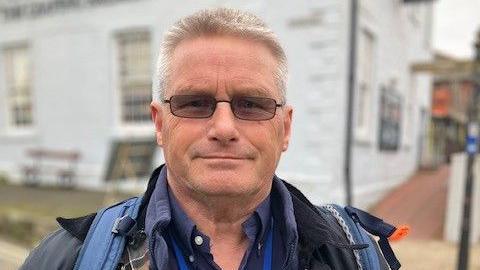
NASUWT's John Hall warns a crisis is looming
In North Tyneside, there was shock a few weeks ago with news of another school facing closure.
Monkseaton High was built by the Department for Education just 14 years ago.
Revolutionary in its design, it is still hailed as state-of-the-art. It has room for 1,000 pupils but at the moment it is only half full.
It is also in significant debt and the local council is now consulting on its future.
'Very unsettling'
Father-of-three Chris O'Neill has one daughter who started in Year 9 in September and the family has been rocked by the news.
"We're now worried what school she'll go to, who with and how she'll get there," Mr O'Neill said.
"It's very unsettling and what's easy to forget is this is the year group that missed out on their introduction to middle school because of Covid.
"So to disrupt them again at the start of their high school just feels like a very dangerous thing to be doing."
He said there was a real "sense of disappointment" and closing a school had an "wide impact on the community".
North Tyneside Council says declining pupil numbers due to parent choice and a lower birth rate mean Monkseaton High is not viable.
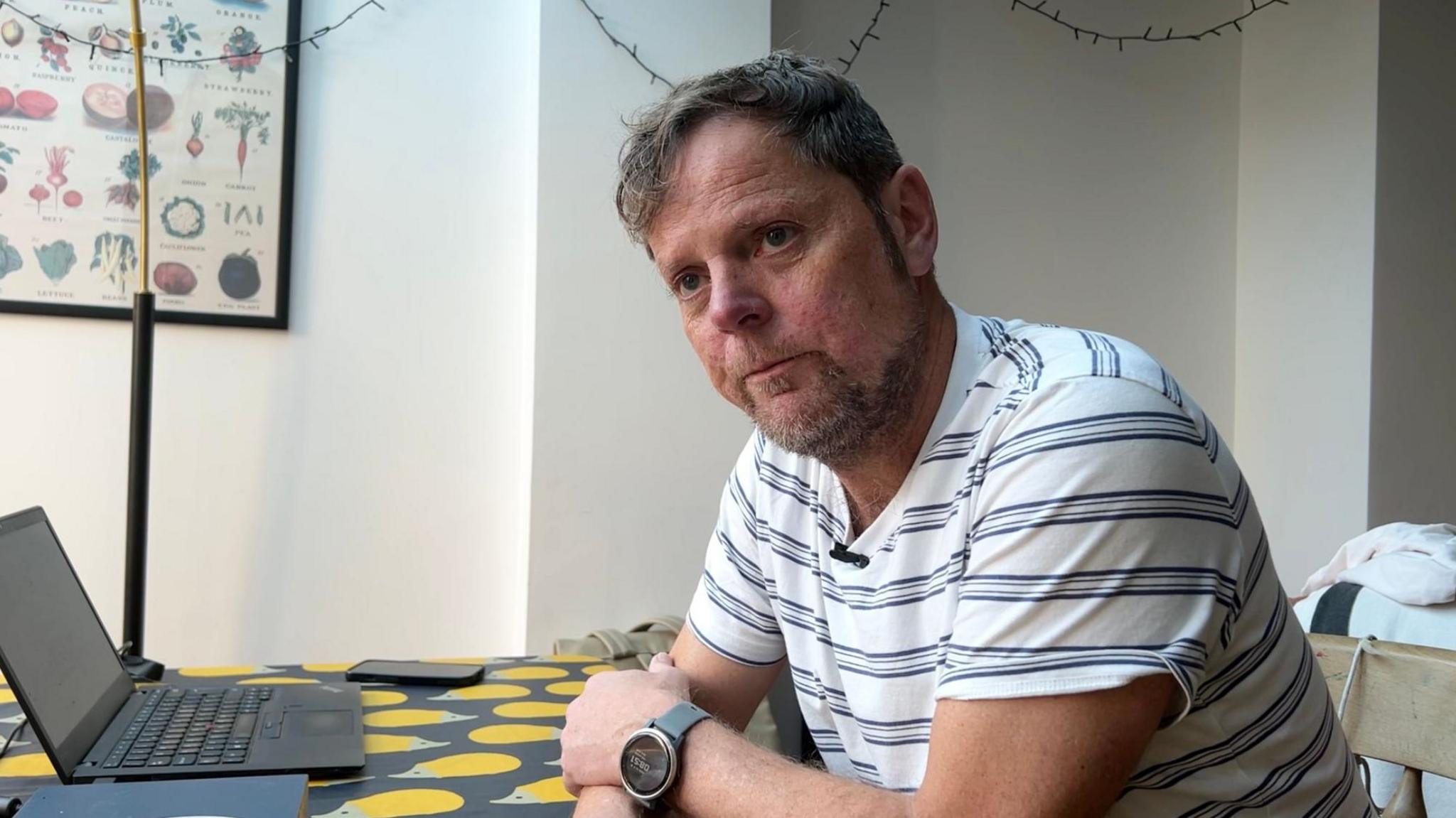
Chris O'Neill describes the situation in North Tyneside as unsettling
Daniel Kebede is the president of the National Education Union (NEU) and used to teach in the North East.
He argues some good could from falling numbers: "We've got the second-highest primary class sizes in the developed world.
"We should actually be seeing a decline in pupil rolls as an opportunity to bring class sizes down to a European average rather than seeing it as an opportunity to restructure or close schools."
MP McKinnell told the BBC: "We know that we need to make sure that the way the funding is distributed gets the best outcome for every child.
"We'll always keep it under review to make sure that the choices that are being made are targeting getting that support to children where they need it."
You can see more on this story on Politics North on BBC One in the North East and Cumbria at 10:00 BST on Sunday 20 October and on iPlayer.
Follow BBC North East on X, external and Facebook, external and BBC Cumbria on X, external and Facebook, external and both on Nextdoor and Instagram, external. Send your story ideas to northeastandcumbria@bbc.co.uk.
- Published7 October 2024
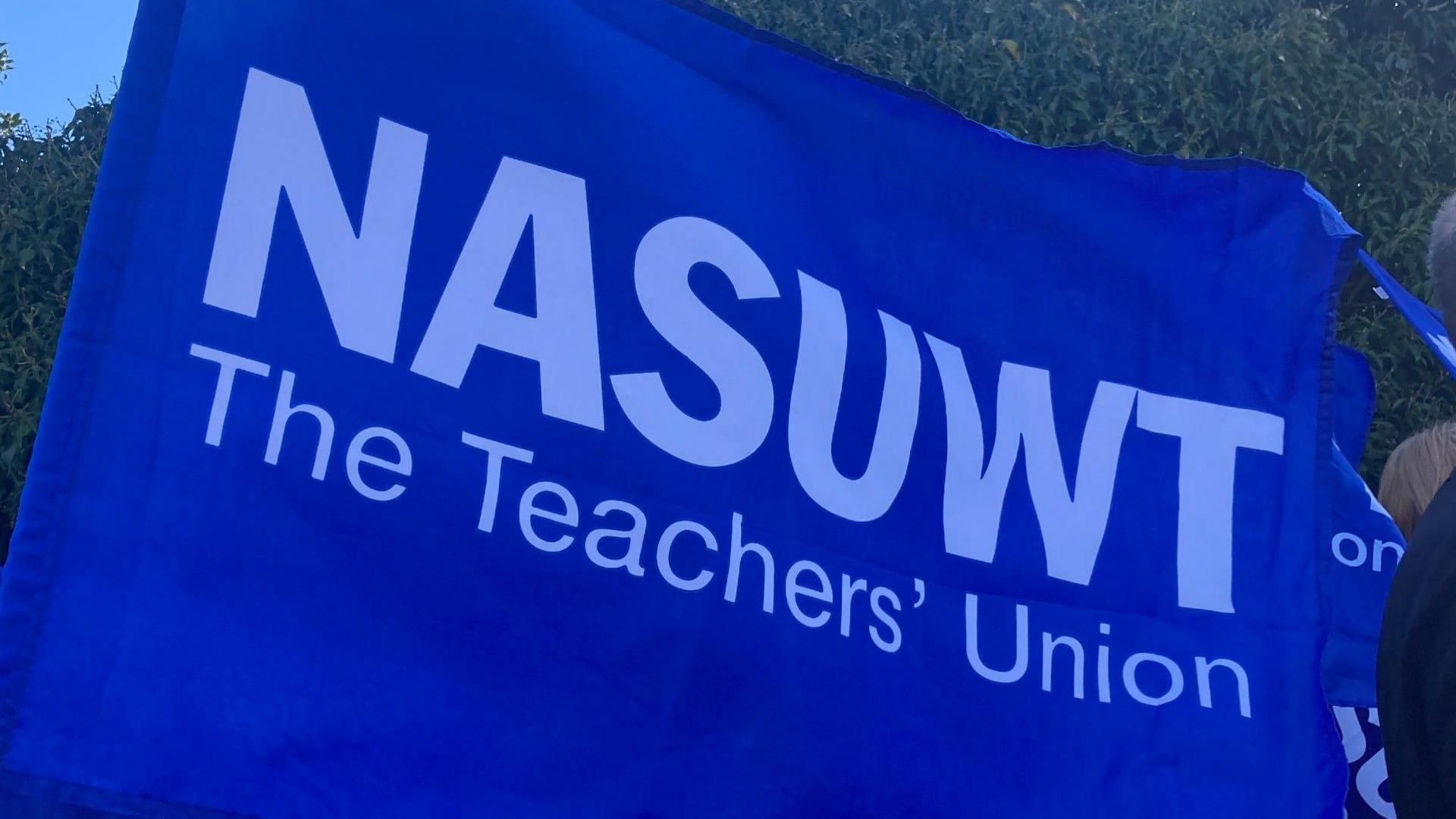
- Published21 September 2024
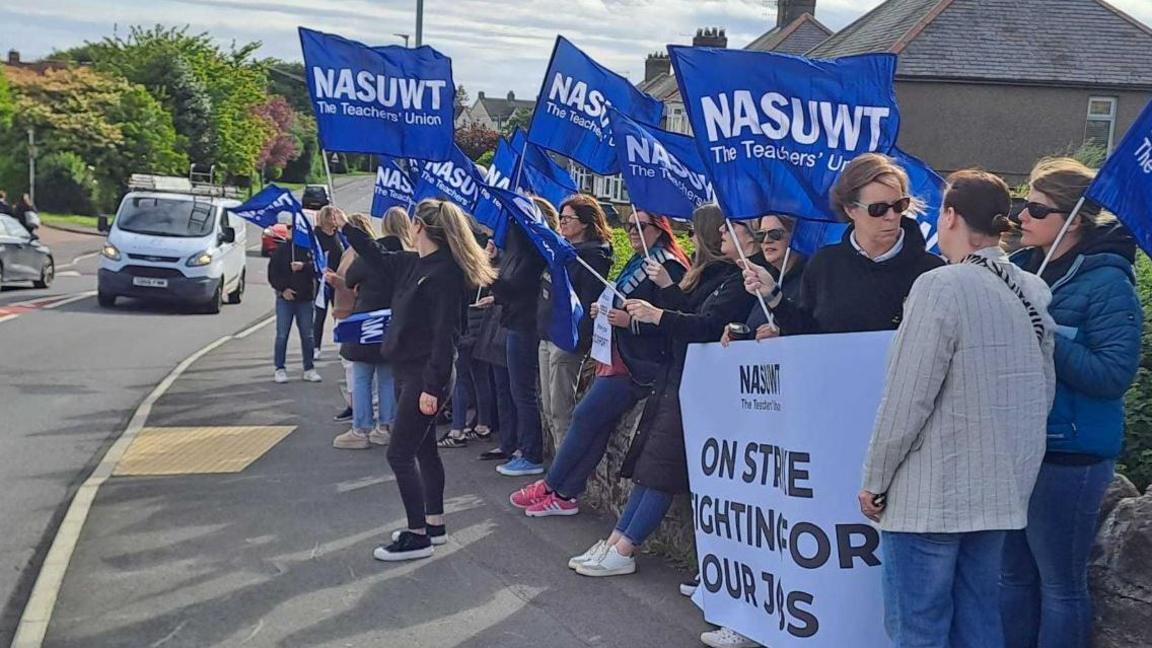
- Published12 June 2024
